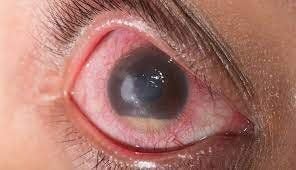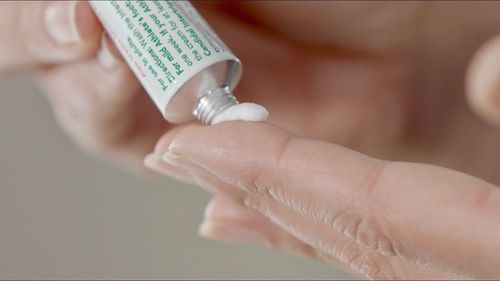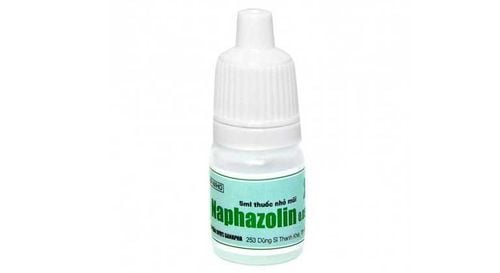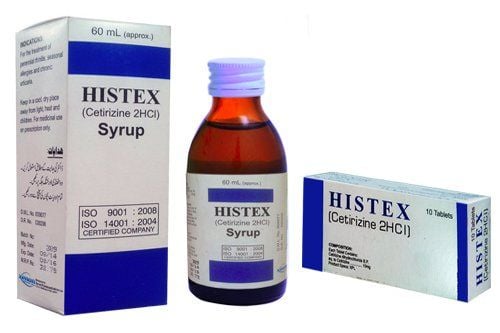This is an automatically translated article.
Rhinocort (active ingredient Budesonide) has anti-inflammatory, anti-allergic and immunosuppressive effects. The drug is usually given as an aerosol inhaler and a dry powder inhaler.1. What does Rhinocort do?
Rhinocort is indicated for the prevention and treatment of seasonal and year-round allergy symptoms (such as stuffy, runny or itchy eyes, nose, throat, sneezing). Budesonide is a corticosteroid that works by reducing swelling (inflammation) in the nasal passages.2. Instructions for using Rhinocort . nebulizer
Patients need to carefully read the instructions for using Rhinocort Allergy Aerosol before using or follow the doctor's instructions. If you have any questions, you can consult your doctor or pharmacist.
Rhinocort aerosol is used for nasal spray, usually 1 or 2 sprays in each nostril, 1-2 times a day as directed by your doctor. Avoid spraying Rhinocort in the eyes. Blow your nose lightly before using the medicine. Shake the bottle gently before spraying. Follow your doctor or pharmacist's instructions for the correct way to take your nebulizer, especially for the first time or when you haven't used it for 2 days or more. Follow the instructions for cleaning or opening the syringe if you have not used it for 14 days or more.
To use Rhinocort aerosol spray, the patient needs to:
Remove the plastic bottle cap. Press in with your finger to close one side of the nose. Tilt your head slightly forward, keeping the bottle upright, and then carefully insert the applicator into the other nostril. Press firmly on the pump unit to inject a puff into the nose, while still breathing gently through the nose (mouthpiece). Continue pumping the next puff until the number of uses. Patients should direct the spray head deep into the nasal cavity, do not spray directly into the middle wall of the nose (nasal septum). After spraying, take the spray head out and tilt your head back for a few seconds. This helps the medicine to disperse to the back of the nose. Repeat this process for the other side of the nose. Wipe the spray head and close the plastic cap. Avoid blowing your nose for 15 minutes after using Rhinocort. Depending on your health condition, age and ability to respond to treatment, your doctor will prescribe the appropriate dose. Young children may need a smaller dose and adult help to use Rhinocort nebulizer properly. Use Rhinocort regularly, exactly as prescribed for the drug to maximize its effects. To make it easier to remember, take your medicine at the same time every day. Also, during treatment with Rhinocort, do not increase the dose on your own or use it more often or for longer than prescribed by your doctor. Increasing the dose does not improve the condition any faster, on the other hand increases the risk of side effects.
Rhinocort does not work right away. Most patients who use this drug will feel the effect of this drug in 1 to 2 days, in some cases it can take up to 2 weeks for patients to respond to the drug. Talk to your doctor or pharmacist about adding other medicines (such as drops/nasal sprays, oral antihistamines) together with Rhinocort until the full effect is achieved. . Parents should talk to their doctor if their child needs to use Rhinocort Allergy Aerosol for more than 2 months in a year.
Keep track of the number of sprays for each nebulizer. Discard the product after you have used up the number of sprays indicated on the manufacturer's packaging. Do not transfer the medicine to another bottle. Follow the instructions on the package to unlock the spray head if necessary and clean the sprayer.
Tell your doctor if your condition does not improve or worsens after 2 weeks of treatment with Rhinocort. If you think you may have another medical condition, seek medical attention immediately.

Đau đầu là một trong những tác dụng phụ khi sử dụng thuốc Rhinocort
3. Side effects when using Rhinocort
During the use of Rhinocort, patients may feel dry or burning nose and throat; cough, sneeze; nosebleeds or an unpleasant taste and odor. If any of these side effects persist or get worse, tell your doctor right away.
Remember that your doctor prescribed you this medicine because he or she has judged that the benefit outweighs the risk of side effects. Many people who use Rhinocort Allergy Aerosol have no serious side effects.
Tell your doctor right away if you have any of the following symptoms, including: Loss of smell or taste; pain, sores in the nose.
Although rare, intranasal corticosteroids can be absorbed into the bloodstream. This leads to corticosteroid side effects related to elevated blood levels of the drug. These side effects are more likely to occur in children and people who use Rhinocort for a long time, in high doses. Tell your doctor right away if you have any of the following serious side effects:
Unusual fatigue. Exhausted. Unexplained weight loss. Headache . Swollen ankles and feet. Thirst and urinating several times a day. Vision problems. Corticosteroids work by weakening the body's ability to fight infection (immunosuppression). This leaves the patient vulnerable to serious infections (even death, although very rarely) or worsens any existing infections. This side effect is less common with topical corticosteroids inhaled through the nose (such as budesonide). However, the risk may be increased with high doses, especially with long-term use.
Tell your doctor right away if you develop any symptoms of an infection, such as ear pain, persistent sore throat, fever, chills, white patches inside the nose or on the back of the nose. throat.
A very serious allergic reaction to Rhinocort is very rare. However, if you notice any symptoms of a serious allergic reaction to Rhinocort, including: Rash, itching or swelling, difficulty breathing, dizziness, seek medical attention. .
This is not a complete list of possible side effects of Rhinocort Allergy Aerosol medicine. If you notice other side effects not listed above, contact your doctor for proper treatment.
4. Caution when using Rhinocort
Before taking budesonide, tell your doctor if you have any allergies. Rhinocort products contain inactive ingredients, which may cause allergic reactions or other problems. Before taking Rhinocort, patients should talk to their doctor about their medical history, especially eye problems (such as glaucoma or cataracts), infections (including tuberculosis), recent nose problems (such as trauma or nose surgery). Because of the risk of immunosuppressive side effects while taking budesonide, patients should avoid contact with people who have infections that are potentially contagious (eg, chickenpox, measles, influenza). Consult a doctor if you have had contact with infected patients. Although rare, long-term use of corticosteroids can make it difficult for the patient's body to respond to the profound effects. Therefore, before having surgery, emergency treatment, or having a serious illness or injury that requires urgent treatment, tell your doctor that you have or have been using Rhinocort in the past few months. Although there is little risk, Rhinocort can temporarily slow a child's growth if used for a long time. Therefore, parents should let the baby see the doctor regularly to check the height and weight. Tell your doctor if you are pregnant before using budesonide nasal spray. Rarely, children are born to mothers who have been taking corticosteroids (including budesonide) for a long time and have residual corticosteroid hormone in their blood, even at low concentrations. Tell your doctor immediately if you notice that your newborn has symptoms such as persistent nausea and vomiting; severe diarrhea or weakness. Nebulized budesonide for nasal spray has the potential to pass into breast milk in very small amounts, but does not affect breastfeeding. Postpartum women should consult their doctor before breast-feeding.

Nếu có các vấn đề về mắt thì nên thông báo với bác sĩ trước khi dùng thuốc Rhinocort
5. Interactions between Rhinocort and other drugs
Interactions between Rhinocort Allergy Aerosol and other drugs when used at the same time or in close proximity can affect the activity, effects and effectiveness of treatment. Therefore, patients need to talk to their doctor about the medications they are taking. At the same time, while taking Rhinocort, the patient should not arbitrarily use, stop or change the dose of any other medicine.
Check all prescription labels carefully, as drugs with similar effects (other corticosteroids such as prednisone) increase the risk of side effects if taken with budesonide.
6. Other notes when using Rhinocort
In case of overdose of Rhinocort and serious symptoms such as shortness of breath, fainting, ... need to take the patient to the emergency room immediately. Visit your doctor periodically and perform necessary medical tests, such as nasal exams, height measurements in children to monitor progress and check for side effects while using Rhinocort. Avoid triggers like pollen, pet dander, dust mites, mold, and smoke, which can worsen allergy symptoms. If the patient misses a dose of Rhinocort, take it as soon as you remember. If it is almost time for your next dose, skip the missed dose. Use the next dose of Rhinocort as usual, do not double the prescribed dose. Store Rhinocort Allergy Aerosol at room temperature, keep the bottle cap tightly closed, away from light and moisture. Always keep the bottle upright. Dispose of the product appropriately when it expires or when it is no longer in use. Knowing the information about Rhinocort Allergy Aerosol before use always brings positive effects as well as reduces risks for patients. Besides, if you have any questions, customers can send questions to Vinmec International General Hospital to receive in-depth advice from a team of doctors and pharmacists with many years of experience.
Please dial HOTLINE for more information or register for an appointment HERE. Download MyVinmec app to make appointments faster and to manage your bookings easily.
Reference source: Webmd.com













